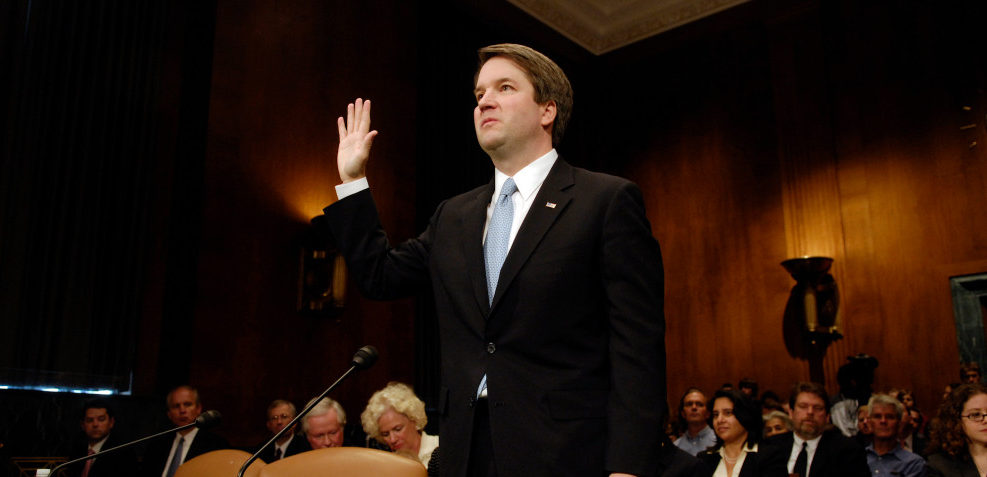This story has been updated.
Brett Michael Kavanaugh, a 12-year veteran of the D.C. Circuit and a stalwart of the court’s right flank, is President Trump’s nominee to replace retiring Justice Kennedy on the Supreme Court. If confirmed, Kavanaugh will join three other current justices who first served on the D.C. Circuit.
“Throughout legal circles, he is considered a judge’s judge, a true thought leader among his peers,” Trump said as he announced the selection Monday night (July 9). “He’s a brilliant jurist with a clear and effective writing style, universally regarded as one of the finest and sharpest legal minds of our time.”
Kavanaugh, 53, built his career working in D.C. Republican circles, and as a judge he has maintained a solidly conservative record characterized by disciplined textualism and skepticism of the regulatory state. On controversial social issues, he has at times sought minimalist approaches—like when he argued in dissent that the court did not have jurisdiction to rule on the constitutionality of the Affordable Care Act’s individual insurance mandate. He invoked “the bedrock principle of judicial restraint that courts avoid prematurely or unnecessarily deciding constitutional questions” (albeit while going out of his way to criticize the insurance mandate in a post-script to his opinion).
Some grassroots conservatives drummed up opposition to Kavanaugh in recent days, attacking him for his deep ties to the D.C. establishment and questioning whether he is sufficiently conservative. Some of them lobbied for two other federal judges seen as frontrunners to take Kennedy’s seat: Thomas Hardiman of the Third Circuit and Amy Coney Barrett of the Seventh Circuit. Kavanaugh beat them out in a suspenseful selection process that some likened to a reality TV show.
But in remarks from the east room of the White House after accepting the nomination, Kavanaugh conveyed restraint and humility. He spoke of his family, his faith, and, of course, Kennedy, for whom Kavanaugh once clerked. “The framers established that the Constitution is designed to secure the blessings of liberty,” he said. “Justice Kennedy devoted his career to securing liberty. I am deeply honored to be nominated to fill his seat on the Supreme Court.”
Kavanaugh has lived most of his life in the D.C. area. He was born here in 1965 and was raised in Bethesda, MD by two lawyers. His mother, Martha Kavanaugh, served as a state court judge in Maryland. He was raised Catholic and attended Georgetown Preparatory School, an esteemed all-boys Catholic high school that fellow Trump nominee Justice Gorsuch also attended.
Kavanaugh went on to attend Yale for his undergraduate and legal education—and, if confirmed, he would be the only current “double Yalie” on a Supreme Court full of Harvard and Yale degrees. After law school, he leaped through elite rites of legal passage, clerking for Judge Walter Stapleton on the Third Circuit and Judge Alex Kozinski on the Ninth Circuit before earning a fellowship with Solicitor General Ken Starr and returning to his final clerkship on the Supreme Court with Kennedy.
He began working at the White House in 2001 and held various positions before becoming staff secretary to President George W. Bush. He later married Ashley Estes, who was Bush’s personal secretary.
In 2003, Bush nominated him to the D.C. Circuit. Democrats fiercely opposed his nomination, but after a standstill that lasted nearly three years, the Senate confirmed him in 2006 in a 57-36 vote. A similarly contentious nomination battle is almost certain this summer, as Kavanaugh seeks to take the seat being vacated by his former boss.
Circuit Breaker will continue to provide full coverage of the Kavanaugh confirmation, along with in-depth analysis of various areas of his career and jurisprudence. To read every opinion he has written on the D.C. Circuit, visit Circuit Breaker‘s special Kavanaugh page.
![]()

